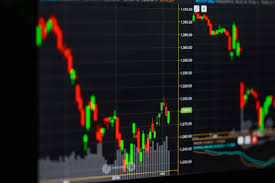
In the vast and dynamic world of Forex trading, having a structured approach is crucial for achieving consistent results. This article aims to present a comprehensive Forex trading framework, underpinned by professional guidelines that can help traders navigate the complexities of the currency market. For more insights on this subject, visit forex trading framework professional guidelines forex-level.com.
Understanding the Forex Market
The foreign exchange market (Forex) is the largest financial market in the world, with an estimated daily trading volume exceeding $6 trillion. It operates 24 hours a day, five days a week, and involves trading currencies in pairs, such as EUR/USD or GBP/JPY. Understanding the fundamental principles of the Forex market is the first step in developing an effective trading framework.
The Importance of a Trading Framework
A trading framework provides a systematic approach to trading. It outlines rules and guidelines that help traders make informed decisions, manage risk, and maintain emotional discipline. By having a clear framework, traders can avoid impulsive actions based on market volatility and stay focused on their long-term objectives.
Key Components of a Successful Trading Framework
1. Goal Setting
Every successful trading journey begins with clear goals. Define what you aim to achieve with your trading efforts. Are you looking for short-term gains, or do you have long-term investment strategies? Setting SMART (Specific, Measurable, Achievable, Relevant, Time-bound) goals can help you maintain focus and direction.
2. Risk Management
One of the most critical aspects of Forex trading is risk management. Traders should determine how much capital they are willing to risk on each trade. A common guideline is to risk no more than 1-2% of your trading capital on a single trade. This limits potential losses and protects your trading account from significant drawdowns.
3. Technical Analysis
Technical analysis involves analyzing price charts and using various indicators to predict future price movements. Familiarize yourself with different chart patterns, candlestick formations, and indicators such as Moving Averages, Relative Strength Index (RSI), and Fibonacci retracements. This knowledge will enhance your ability to make informed trading decisions.

4. Fundamental Analysis
While technical analysis focuses on price action, fundamental analysis looks at the economic factors influencing currency values. Keep abreast of economic news, interest rates, inflation rates, and geopolitical developments that may affect the Forex market. Understanding these factors can provide valuable insights into market sentiment and help inform your trading strategy.
5. Trading Strategy
Developing a robust trading strategy is essential for successful Forex trading. Your strategy should outline your entry and exit criteria, risk-reward ratio, position sizing, and trading timeframe. Backtest your strategy using historical data to assess its viability before implementing it in live trading conditions.
6. Trading Plan
A comprehensive trading plan incorporates all elements of your trading framework. Document your goals, analysis methods, risk management rules, and trading strategy. A well-crafted trading plan serves as a roadmap, helping you stay disciplined and focused during your trading journey.
Maintaining Emotional Discipline
Emotions can significantly impact trading decisions. Fear and greed often lead to impulsive actions that can result in losses. To maintain emotional discipline:
- Stick to your trading plan and avoid making decisions based on emotions.
- Keep a trading journal to analyze your trades and identify emotional triggers.
- Practice mindfulness or other relaxation techniques to manage stress and anxiety.
Continuous Learning and Improvement
The Forex market is constantly evolving, and successful traders are those who adapt and learn continuously. Engage in ongoing education through books, courses, webinars, and trading communities. Regularly review your trading performance and be open to adjusting your strategies based on your findings.
Conclusion
Developing a structured Forex trading framework is paramount for professional traders who aspire to achieve consistent success in the markets. By implementing the outlined guidelines—goal setting, risk management, technical and fundamental analysis, and emotional discipline—traders can navigate the Forex landscape with confidence. Remember, the journey in Forex trading is a continuous learning experience, and success comes to those who are committed to improving their skills and strategies over time.
In conclusion, your Forex trading framework should be comprehensive yet flexible enough to adapt to changing market conditions. By being disciplined and informed, you can make well-thought-out trading decisions that contribute to your long-term success in the Forex market.





Be the first to comment